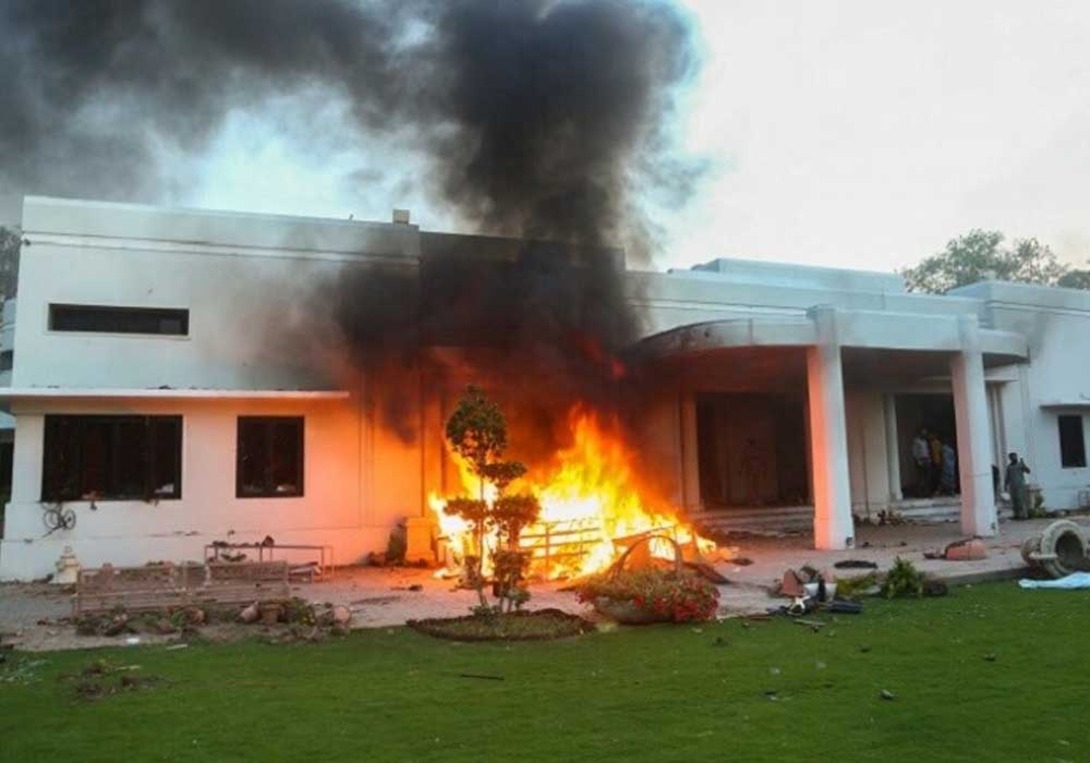Interior Minister Rana Sanaullah has said that former prime minister and Pakistan Tehreek-e-Insaf (PTI) Chairman Imran Khan would be tried in military court for “planning” attacks on military installations on May 9.
Top military brass and the civilian government decided to hold trials of PTI supporters who attacked military installations on May 9 to protest the arrest of their leader Imran Khan, under Pakistan Army Act, 1952 and the Official Secrets Act, 1923.
According to these acts, civilians can be tried in military courts for inciting mutiny, spying, and taking photographs of “prohibited” places.
At least 33 civilians have been handed over to the military so far for trial and six FIRs out of 499 cases would be tried in the military courts.
Human rights defenders have criticised the trial of civilians in military courts for the following reasons:
- According to Human Rights Watch, trying civilians before military courts violates Pakistan’s obligations under international human rights law to ensure the due process and fair trial rights of criminal suspects.
- Human rights groups have also said that the Pakistan Army Act, 1952 and the Official Secrets Act, 1923, allow civilians to be tried in military courts in “narrowly defined circumstances”.
- Trials in military courts do not ensure impartiality. According to international laws, equitable, impartial and independent administration of justice is everyone’s right.
- Judges of the military courts are serving officials in the government, therefore, they cannot be considered separate from the government. So these judges cannot be considered impartial.
- Authorities in Pakistan have never allowed independent monitoring of military trials. Defendants have often been denied copies of judgments with the evidence and reasoning in the verdicts in their cases.


